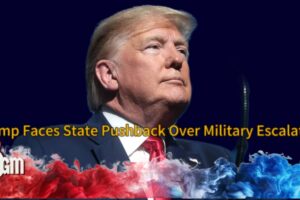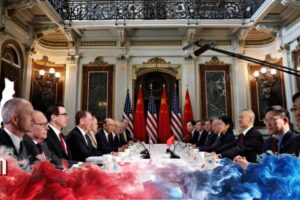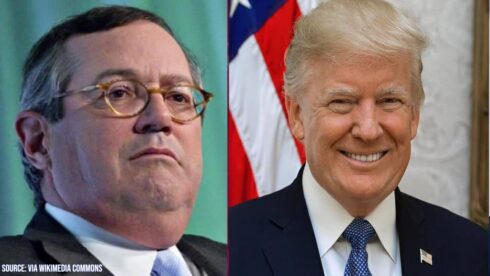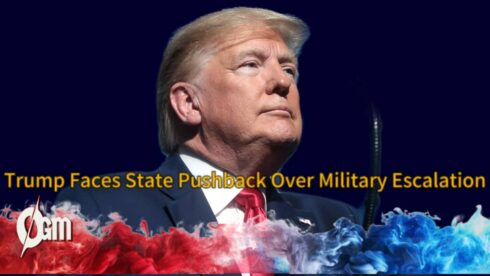President-elect Donald Trump’s decision to appoint investment banker Warren Stephens as the U.S. Ambassador to the United Kingdom has ignited widespread criticism. The announcement, shared on Donald Trump’s social media platform, Truth Social, is being labeled as a clear instance of political favoritism. While Donald Trump praised Stephens as a successful businessman, analysts and sections of his own supporter base have expressed disappointment, pointing out Stephens’ lack of diplomatic experience. Critics argue that the appointment undermines the credibility of a position traditionally reserved for seasoned diplomats equipped to handle complex international relations.
Warren Stephens, a prominent financier and a major contributor to a MAGA super PAC, is viewed by many as benefiting from a quid pro quo arrangement rather than merit-based selection. Observers believe this controversial move prioritizes loyalty and campaign contributions over qualifications, sparking concerns about the precedent it sets for future appointments. With the U.S.-UK relationship being one of the most significant in global diplomacy, detractors fear that Donald Trump’s decision risks diminishing the role’s integrity and effectiveness at a crucial time.
Donald Trump’s Justification: Loyalty Over Expertise?
In his statement, Donald Trump lauded Stephens as “one of the most successful businessmen in the country,” emphasizing his long-standing ambition to serve the U.S. full-time. According to Trump, Stephens’ business successes make him a prime candidate to navigate the complexities of U.S.-UK relations.
However, skeptics question how Warren Stephens’ experience in finance aligns with the nuanced demands of international diplomacy. Many see this as yet another instance where Trump prioritizes loyalty and financial contributions over proven competency in public service roles.
Supporters Feel Betrayed: A Breach of Trust?
Donald Trump’s MAGA base, known for its staunch anti-establishment stance, is reeling from the decision. Critics within the movement argue that appointing a Wall Street figure contradicts Donald Trump’s promise to “drain the swamp” and rid Washington of crony capitalism.
The sentiment among grassroots supporters is that this appointment symbolizes a betrayal of the movement’s core values. Social media platforms have been rife with debates, with many accusing Donald Trump of sidelining their interests in favor of rewarding wealthy allies.
Warren Stephens: A Profile of the Controversial Nominee
Warren Stephens, CEO of Stephens Inc., is a titan in the investment banking world. His substantial financial contributions to Donald Trump’s political campaigns and related super PACs have drawn scrutiny, especially in light of his new appointment.
Despite his financial prowess, Warren Stephens has no history of public service or diplomatic engagement. Critics argue that his wealth and political donations, rather than merit or expertise, have paved his way to one of the most prestigious ambassadorial roles.
Impact on U.S.-UK Relations
The U.S.-UK relationship, often described as a “special relationship,” requires careful handling by seasoned diplomats. Experts warn that appointing someone without experience in diplomacy could strain ties, especially as both nations navigate post-Brexit challenges and evolving global dynamics.
Warren Stephens’ appointment raises concerns about the message it sends to Britain and the global community. Critics fear it could signal a shift toward prioritizing personal and political interests over maintaining the integrity of international relations.
Donald Trump’s Appointment of Stephens Signals Unconventional Governance
President-elect Donald Trump’s selection of Warren Stephens as U.S. Ambassador to the United Kingdom is seen as an early indicator of his governance style for the upcoming term. This decision underscores Donald Trump’s tendency to deviate from traditional political norms, focusing on loyalty and financial backing over conventional qualifications. While this unconventional approach resonates with his promise to shake up the establishment, it raises questions about his commitment to the anti-establishment ethos that endeared him to his base. By appointing a figure tied to Wall Street, Donald Trump risks alienating supporters who expect him to prioritize grassroots interests.
Political analysts suggest that this controversy could set the tone for future high-profile appointments in Trump’s administration. As observers scrutinize his decisions, they predict more contentious debates if similar moves are made. The Stephens appointment is already testing Trump’s ability to balance his base’s expectations with his personal and political alliances. Whether this strategy bolsters or undermines his presidency will depend on how effectively these appointees perform in their roles and how the broader public perceives Trump’s prioritization of loyalty over expertise.














